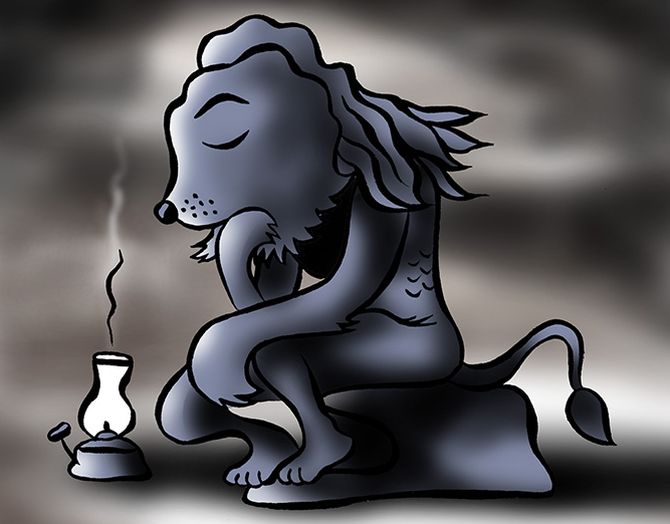Most CEOs say fear is the main reason for the slowdown and spending on the ground by retail consumers is worsening the economic crisis as evident in the falling auto and consumer products sales.
CEOs say the Union Budget could help turn the tide.
Apart from tax rationalisation for individuals and reducing tax terrorism for companies, the Budget should have a plan for how the investment cycle will restart, they said.

A majority of chief executive officers (CEOs) of Indian companies expect economic growth to slow down further in the new year, mainly due to slowing consumer demand in the country and ongoing trade wars among the world’s major economies.
A survey of 50 CEOs, conducted by Business Standard across the nation in December, shows that 52 per cent of the business leaders expect the slowdown to worsen in 2020, while 42 per cent believe the worst is now behind.
Six per cent of them responded with “can’t say”.
“Given the global cues, it looks like we may have some time more to go before we see an uptick across the board.
"There were good signs this quarter as the festival season saw consumption grow, but we will need to see a sustained pick-up before we term it a recovery,” said Harsh Goenka, chairman of RPG Enterprises.
In the third quarter of 2019-20, India’s gross domestic product (GDP) grew by 4.5 per cent from a year earlier, compared with 7 per cent in the year-ago quarter.
In the December quarter, CEOs expect economic growth to fall below the 4-per cent mark.
Almost 56 per cent of the CEOs say fear is the main reason for the slowdown.
CEOs say spending on the ground by retail consumers is worsening the economic crisis as evident in the falling auto and consumer products sales.
“Demand from smaller cities and rural areas is not moving much.
"Bigger cities are seeing some activity, but only when there are sales during festival days,” according to the CEO of a large consumer products company, who requested not to be named.
However, 62 per cent of the CEOs expect an uptick in consumer spending in 2020, especially if income tax is cut, which will play an important role in bringing customers back into the stores.
CEOs say the Union Budget, which is expected to be announced on February 1, could help turn the tide.
“Apart from tax rationalisation for individuals and reducing tax terrorism for companies, the Budget should have a plan for how the investment cycle will restart,” said the CEO of a financial services company.
CEOs say the tax department has raised several tax demand in the December quarter and is asking the assessees to pay 20 per cent of the demand immediately and, if necessary, appeal the demand.
“The 20 per cent downpayment is supposed to help the tax department in meeting their targets even as the case goes for litigation. But this is harassment,” said a CEO.
When asked for their views on the government’s measures to boost the economy, 58 per cent of the CEOs said they were happy but there was more to be done.
“The implementation of Goods and Services Tax (GST), infrastructure boost particularly in railways, tax rate reduction for companies, and interest rate reduction are all positive measures aimed at boosting the economy,” said Goenka.
But 40 per cent of the CEOs are not happy with the government's moves.
“The government’s efforts seem to be piecemeal.
"There is an urgent need to streamline operations and make it as convenient as possible to do business, which isn't happening.
"The faulty GST roll-out has added to the mess,” said a CEO.
Interestingly, almost 38 per cent of the CEOs are expecting the BSE Sensex not to cross the 46,000-mark by 2020-end, and only 16 per cent expect the index to breach the mark.
The BSE Sensex gained 14.4 per cent in calendar 2019 to close at 41,254 points in 2019 on Tuesday.
Some CEOs expect the market to do relatively better in 2020 due to a possible 25 per cent earnings growth of index companies in FY20 and possible favourable tax changes in the Budget.
In spite of the grim economic conditions, an overwhelming majority of the CEOs said they were planning to hire more in the new year, even as 66 per cent of the respondents said they would invest more in 2020.
The confidence of the CEOs also stems from the fact that almost 86 per cent of the CEOs said they hired more people in the year gone by.
Nearly 75 per cent of the CEOs said they were expecting the Reserve Bank of India to pause rate cuts, considering that inflation was rising and the repo rate could not be below the inflation mark.
After five rate cuts in 2019, the RBI on December 5 hit the pause button over worries of rising prices.
The repo rate - the rate at which banks borrow money from the RBI - was kept unchanged at 5.15 per cent even as the retail inflation hovered at a three-year high of 5.54 per cent.
Rising prices could be the black swan event of the year and may turn the tide against the government, warned CEOs.